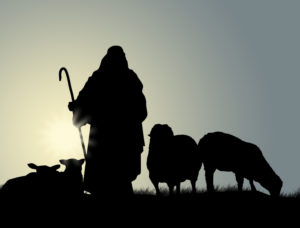Perhaps Psalm 23 may be the best known chapter in the Bible, portraying the restoration, leading, protection, and provisions of a shepherd. The purpose of this is to apply it to us as sheep, the recipients of our shepherd’s benefits. A later Psalm would refer to God’s people as “the sheep of His pasture” 100:3. In John 10 Jesus speaks of Himself as “the good shepherd” in verses 10-11, who leads the sheep in and out to protection and pasture, verses 4-9. Psalm 23 shows us the abundance with which this shepherd supplies all of our need, “I shall not want” in verse 1 literally means “I shall not lack” and the Amplified Bible rightly so renders it. The green pastures bring us to visualize the fresh tender grass of spring, the finest of pasture, and the sheep lying down in the midst of this suggests their want and need has been fully satisfied and they now repose in calmness and contentment. Commentator Albert Barnes says, “the idea is, that the wants of the soul are met and satisfied, and that, in the full enjoyment of this, there is the conviction of abundance, and feeling that in such abundance want will always be unknown.” “The Still waters” continue with a similar thought, that being of calm refreshing and contentment, not the turbulent rushing waters, nor the stagnant pools, of other places that are so offensive, but like “The waters of Shiloah that flow softly” Isaiah 8:6. Waters of rest and refreshing that come from “the fountain of living waters” Jeremiah 2:13. These waters flow gently as the waters of Shiloah flowed from the Gihon spring to the lower pool of Siloam.
My Shepherd will supply my need
(Author unknown)
My shepherd will supply my need;
Jehovah is His name;
In pastures fresh He makes me feed,
Beside the living stream.
He brings my wondering spirit back,
When I forsake His ways;
And leads me, for His mercy’s sake,
In paths of truth and grace.
Unless otherwise noted Scripture quotations are from the New King James Version copyright 1982 by Thomas Nelson Co. used by permission.
